
by Katiana Resovich | Jan 3, 2020 | Financial Globalization, Research
From Professor Maurice Obstfeld’s Keynote speech at the Italian Economic Association Annual Meeting, Palermo, Italy, October 24, 2019:
“The bi-directional connections between nationalism and globalization – with globalization arguably spurring a nationalistic domestic politics and nationalism threatening policy shifts that compromise global economic integration – justify a focus on economic nationalism (de Bolle and Zettelmeyer 2019). In principle, economic policies aiming to further purely domestic objectives can be perfectly consistent with a high degree of global economic integration and cooperation. Thus, my key questions today will concern why this “divine coincidence” seems often difficult to achieve in practice, and why, when difficulties arise, global integration can be an early victim. While my goal is to get beyond quotidian observations about the “winners and losers from trade,” however essential these are as a starting point, you will see that my reflections add up to much less than a full and rigorous account. Still, it seems useful at least to put the current disruptions in their historical context – one objective being to illustrate the continuity with past developments and thereby offer hope that public action has some scope to address the current malaise.”
Read the full address on Professor Obstfeld’s website HERE.
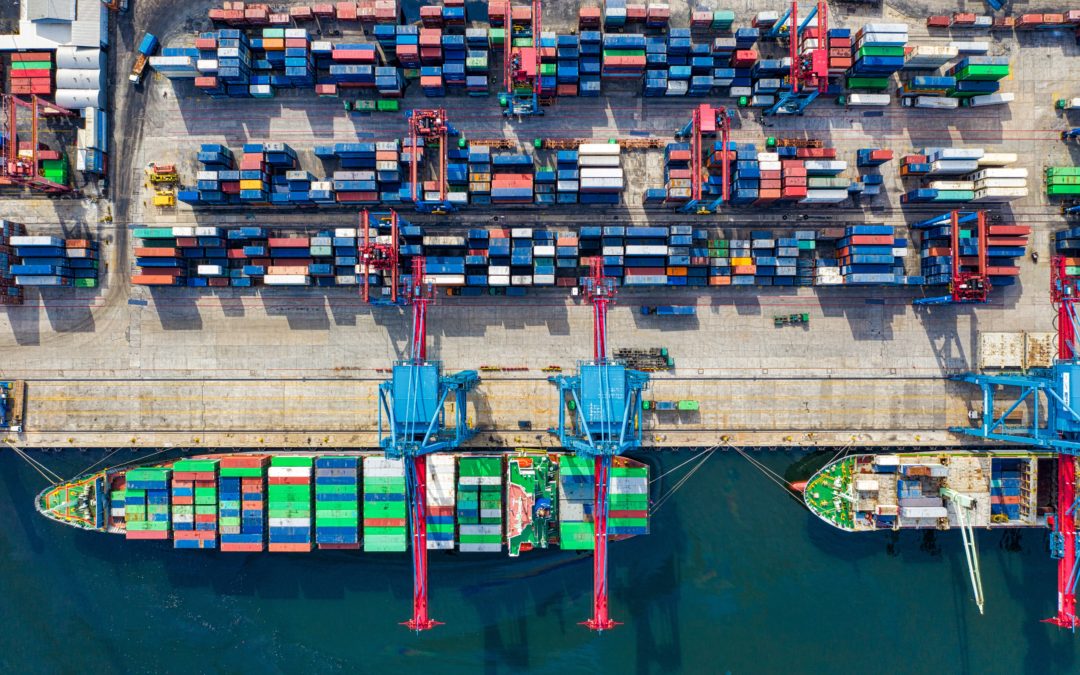
by Katiana Resovich | Jan 3, 2020 | Financial Globalization, Research
Clausen Faculty Professor Maurice Obstfeld writes in his upcoming article in the Italian Journal of Economics, 2020:
“While the Global Financial Crisis of 2008-2009 was not a catastrophe on the order of World War I, there is a broad similarity in the sequelae to both of these events – a failed attempt to return to pre-trauma normalcy, followed by a process of international economic disintegration in the face of changed geopolitical realities. This similarity is history rhyming rather than repeating (in the phrase commonly attributed to Mark Twain), but it does raise three questions about possible cycles in globalization (also a theme of O’Rourke 2018):
- Does globalization inherently foster dynamics that eventually lead to political backlash?
- If so, are these dynamics inevitable, or can complementary economic policies nurture a stable globalization?
- And finally, since policies are endogenous, when are domestic policies that complement and support globalization likely to arise?
Obviously, these are very difficult questions to answer – all I will do here is offer some observations and guesses. Answers that are more complete would have to rely on rigorous and systematic analysis based on insights from a range of social sciences, not just economics.”
Access the full article on Prof. Obstfeld’s website HERE.
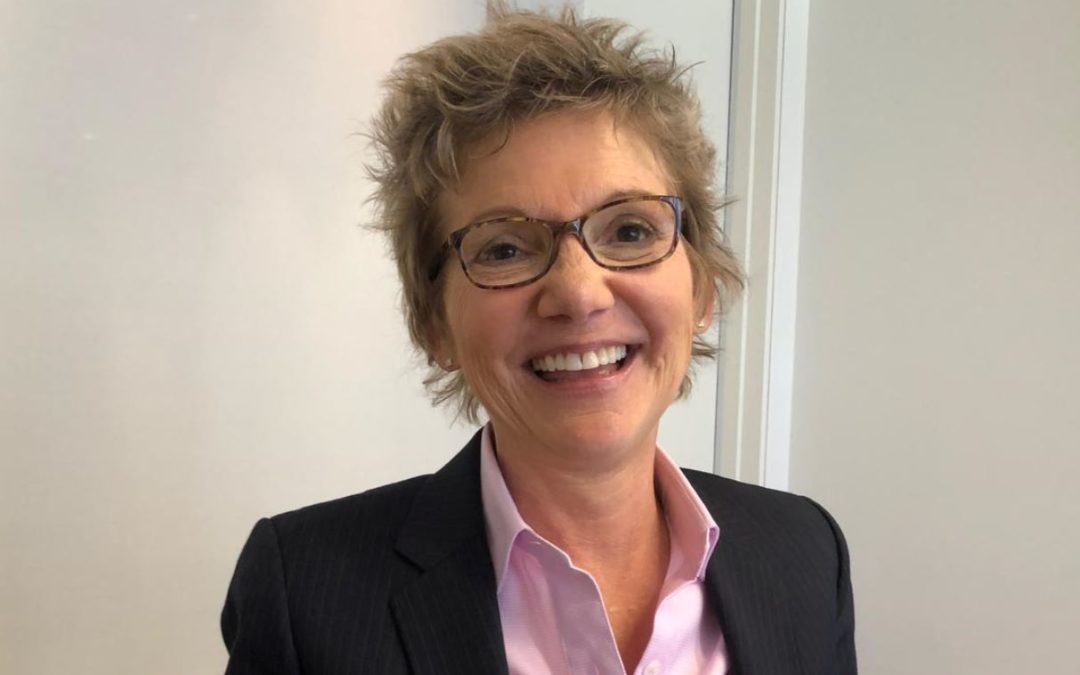
by Katiana Resovich | Dec 23, 2019 | News

(Mary Daly posing for a photo at the San Francisco Federal Reserve Bank. Photo Credit: Reuters: Ann Saphir)
The Clausen Center is pleased to share recent press coverage of statements made by Mary C. Daly, President and CEO of the San Francisco Federal Reserve Bank:
With inflation low, Fed can boost job market: Daly, Reuters
Dr. Daly served on the “Macro Implications of Structural Change in the Labor Market” panel at the Center’s 2019 Conference on Global Economic Issues. Dr. Daly became the President and CEO of the San Francisco Federal Reserve Bank in October 2018.
To learn more about that conference and review the session slides, visit the Event Recap.
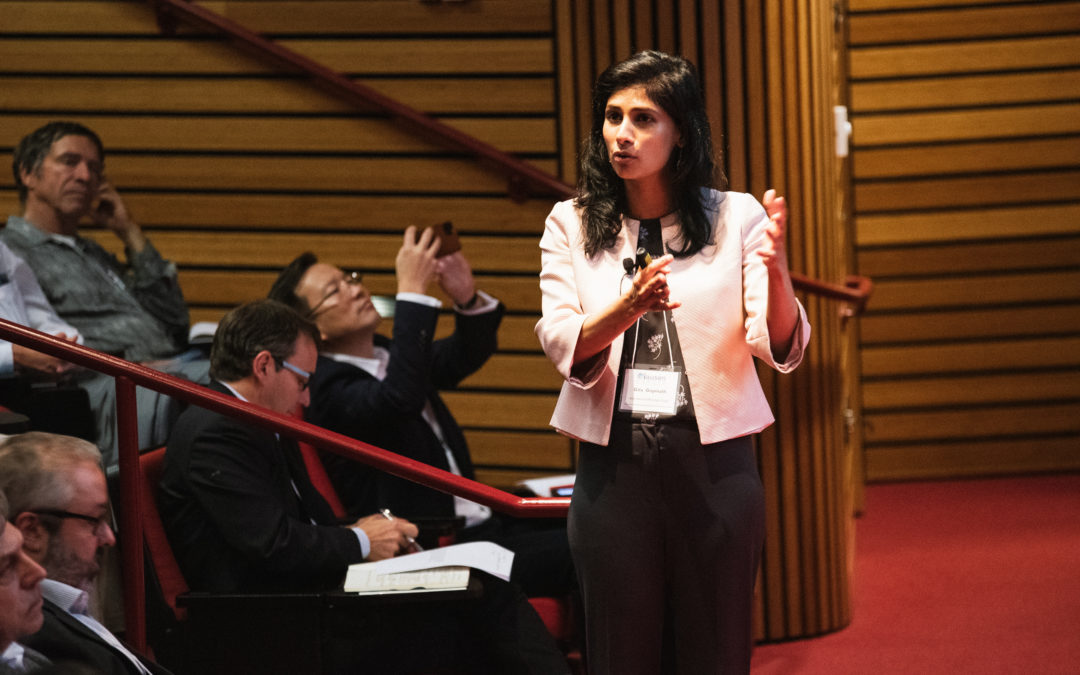
by Katiana Resovich | Dec 23, 2019 | Conferences, Events
Thank you to everyone who attended and participated at the Clausen Center’s 2019 Conference on Global Economic Issues. We are grateful for your support and collaboration.
Opening Remarks
Opening remarks were delivered by Pierre-Olivier Gourinchas (Director, Clausen Center, University of California, Berkeley) and Kim Voss (Acting Dean, Division of Social Sciences, University of California, Berkeley).
Session 1 – Rising Challenges for Emerging Markets
Session 1 was chaired by Carlos Carvalho (Former Deputy Governor, Economic Policy, Central Bank of Brazil) and featured the following panelists:
- Alan Taylor, Professor, University of California, Davis
- Veronica Rappoport, Vice President, Central Bank of Argentina
- Calvin Ho, Senior Vice President and Director of Research, Templeton Global Macro
Click here for Session 1 Slides.
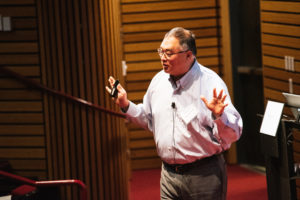
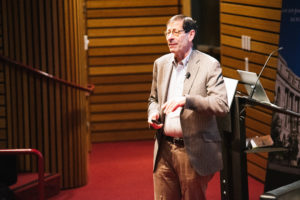
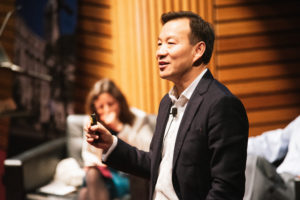
Session 2 – China
Session 2 was chaired by Galina Hale (Research Advisor, Federal Reserve Bank of San Francisco) and featured the following panelists:
Click here for Session 2 Slides
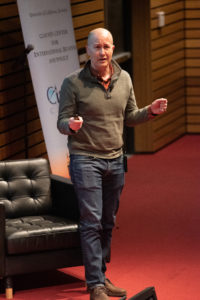
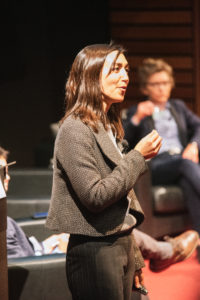
Session 3 – Macro Implications of Structural Change in the Labor Market
Session 3 was chaired by Andres Rodriguez-Clare (University of California, Berkeley) and featured the following panelists:
- Emi Nakamura, Professor, University of California, Berkeley
- Mary Daly, President, Federal Reserve Bank, San Francisco
- Jed Kolko, Chief Economist, Indeed
Click here for Session 3 Slides
For more details about Mary Daly’s presentation and remarks, see the recent Reuters article here.
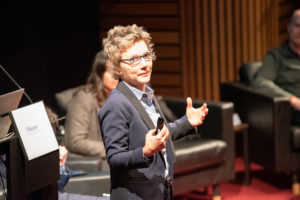
Egon & Joan von Kaschnitz Lecture
Gita Gopinath delivering the Keynote Lecture. Photo Credit: Matt Wong.
The Keynote lecture, titled “A Case for an Intergrated Policy Framework,” was delivered by Gita Gopinath (Economic Counsellor and Director of Research, International Monetary Fund).
Click here for slides of the Keynote Lecture.
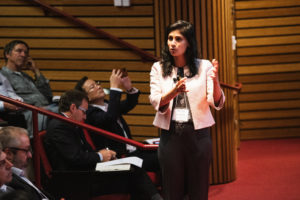
Photo Credit: Matthew L. Wong
Reception
After the Sessions and Keynote Lecture, participants enjoyed food and drinks over conversation during the Conference reception.
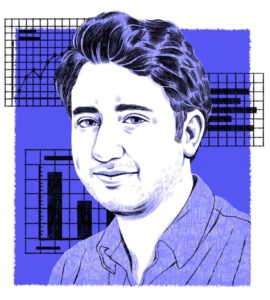
by Katiana Resovich | Oct 23, 2019 | News
 The New Yorker’s Political Scene section has recently featured Professor Gabriel Zucman and his research into wealth inequality and tax havens, with an emphasis on how Prof. Zucman’s research is currently shaping Democratic Primary candidates’ policy proposals. Gabriel Zucman and his colleagues are advocating a progressive wealth tax as a solution to global inequality, one that rethinks both evasion and the goals of taxation. Author Benjamin Wallace-Wells takes a deep dive into Prof. Zucman’s work through interviews on the UC Berkeley Campus and a review of his visionary perspectives on global economics and current economic discourse.
The New Yorker’s Political Scene section has recently featured Professor Gabriel Zucman and his research into wealth inequality and tax havens, with an emphasis on how Prof. Zucman’s research is currently shaping Democratic Primary candidates’ policy proposals. Gabriel Zucman and his colleagues are advocating a progressive wealth tax as a solution to global inequality, one that rethinks both evasion and the goals of taxation. Author Benjamin Wallace-Wells takes a deep dive into Prof. Zucman’s work through interviews on the UC Berkeley Campus and a review of his visionary perspectives on global economics and current economic discourse.
Read the full article here.
Illustration by Claire Merchlinsky for The New Yorker; Source Photograph by Bruno Arbesu / REA / Redux













